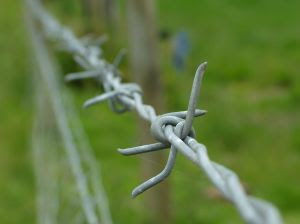reality check
 Visiting the coast this weekend included spending time with my aunt and uncle, an eclectic couple of intellectuals who hail from a small town in Eastern Oregon. Over the years, their activism has brought them to places like Central America and to points beyond. In between protesting the war, doing social work and standing up to evil corporations, my uncle occasionally publishes poetry and in fact, just won a prestigious poetry award.
Visiting the coast this weekend included spending time with my aunt and uncle, an eclectic couple of intellectuals who hail from a small town in Eastern Oregon. Over the years, their activism has brought them to places like Central America and to points beyond. In between protesting the war, doing social work and standing up to evil corporations, my uncle occasionally publishes poetry and in fact, just won a prestigious poetry award.My uncle owned a small newspaper that was financed, like many small papers, by ads from local merchants. It only took publishing one anti-war column and the ads were summarily pulled, and the newspaper folded. Conversation with him is always lively, to say the least. And this time, we got to talking about basic needs.
In addition to their other projects, my aunt and uncle have done a good amount of good works with inmates. The prisoners’ needs are simple, my uncle explained, and similar to the Franklin Reality Model. The model is based on the four categories of needs that all people have and was first identified by Dr. Murray Banks.
The Franklin Reality Model assumes that all people have four basic needs:
- To live
- To have a sense of love and to be loved
- To experience the world around them
- To have a sense of self
People then judge what happens to them and react based on their own belief system. What happens around them or to them will then strengthen their beliefs and justify their subsequent actions or, they will discard information that doesn’t support their belief system. But once they’ve processed information, they act accordingly. For many prisoners, the sense of survival is a strong base need and often related to what landed them in jail in the first place.
For the rest of us, it’s how we react to everyday situations we’re faced with that might be the only thing that really differentiates us from people in jail. In addition, an underlying sense that our basic needs have been met, that knowledge that we are loved and our strong sense of self, may be what saves us. For example, being gainfully employed will preclude robbing banks and shooting someone in the course of a robbery attempt. An innate sense of the wrongness of murder might also prevent someone from killing someone else during an argument.
But if you didn’t have that filter, that bit of a belief system that reminded you about right and wrong, where would you, where would any of us be? ~
Editor's note:
I told a friend that I was writing about the four basic needs of people and he immediately responded with his four basic needs: “pork, cheese, make out sessions and road trips.”
Switch pork with “beer” and I think he might be on to something.


Comments